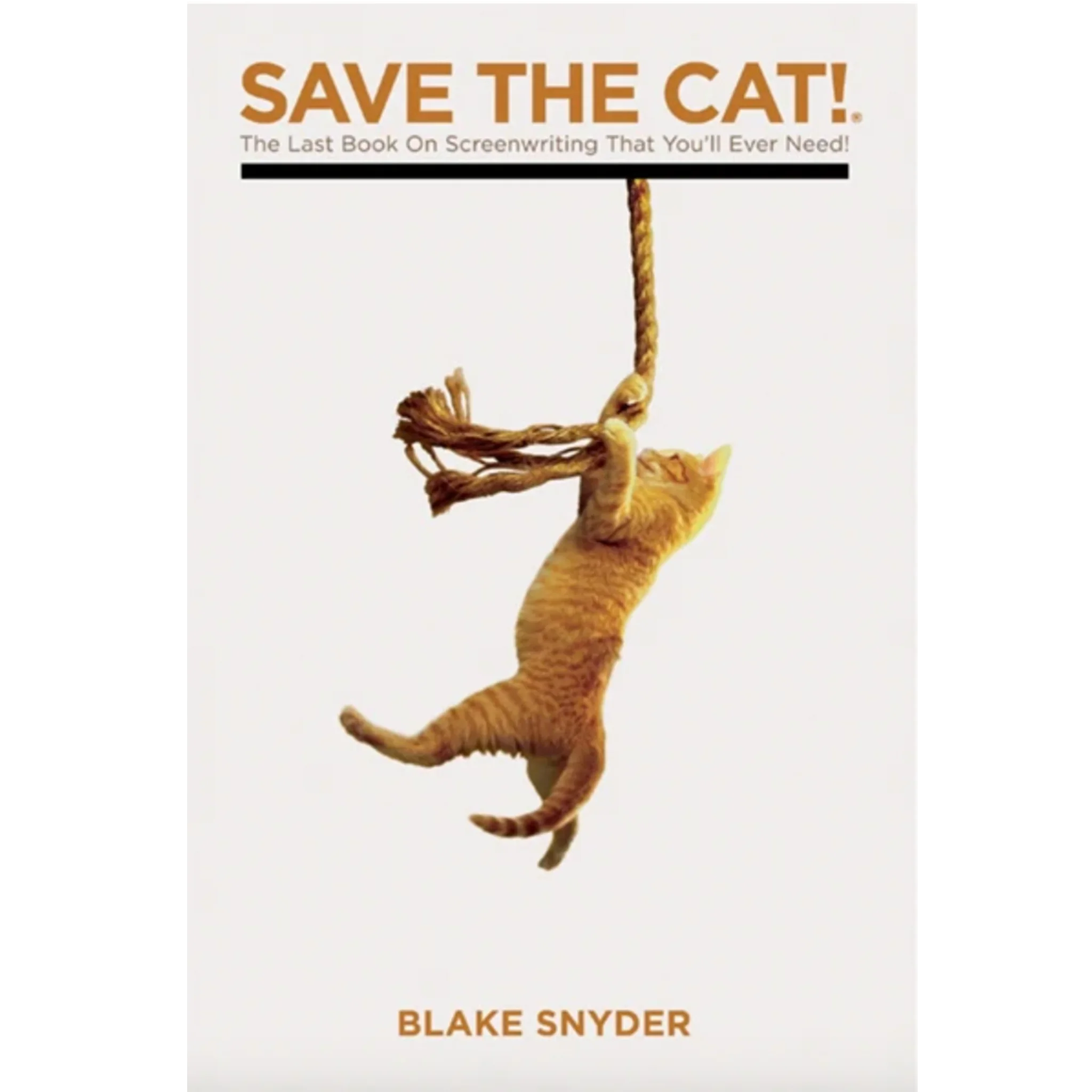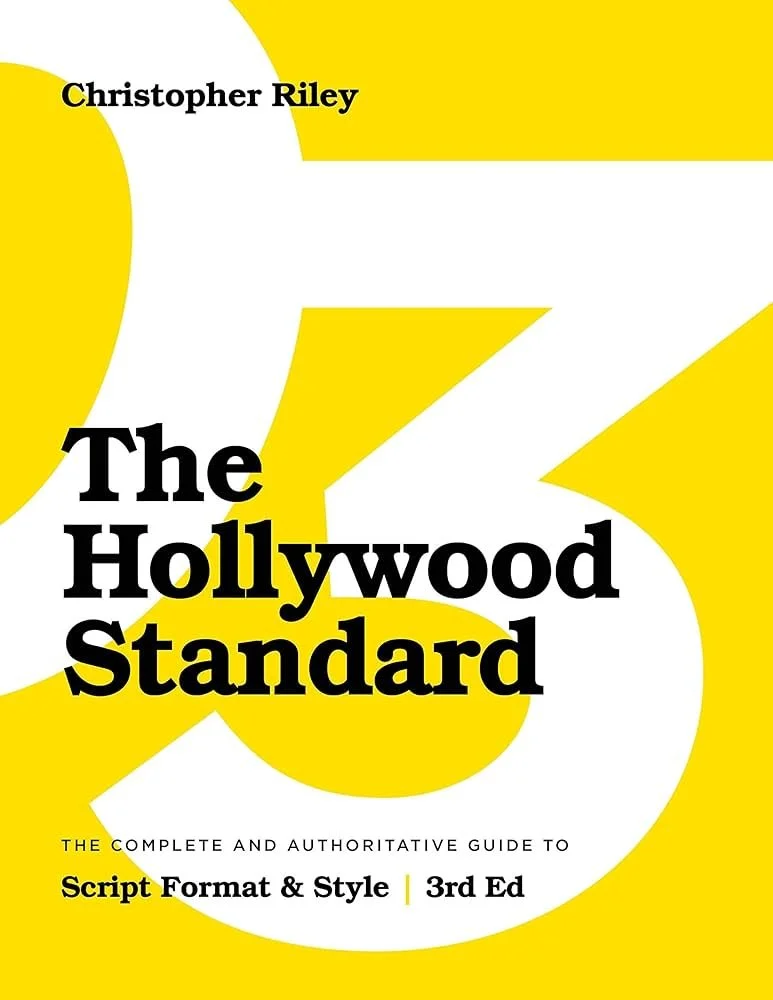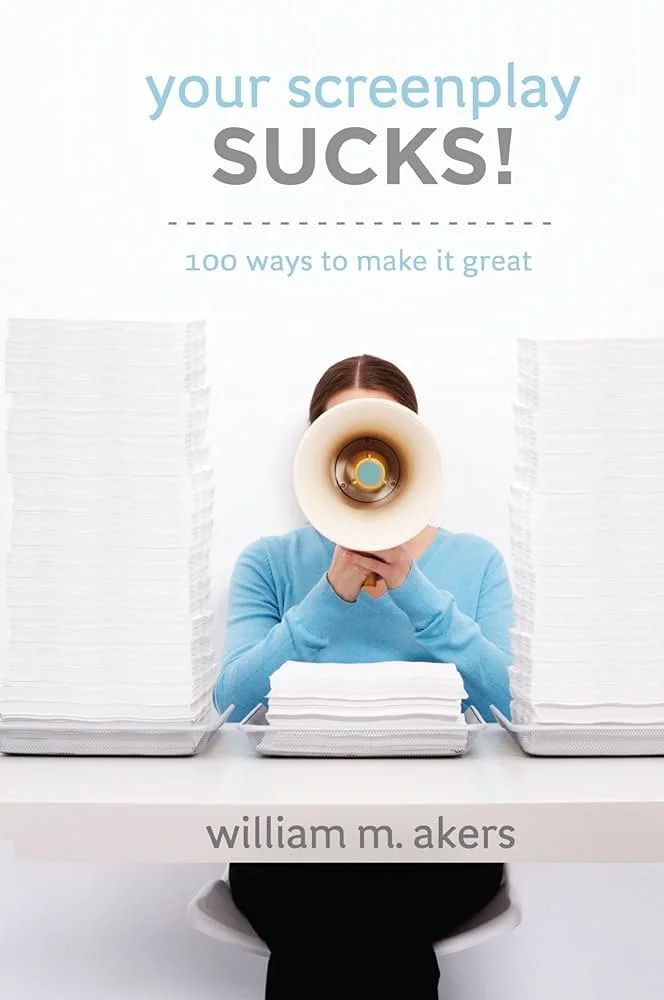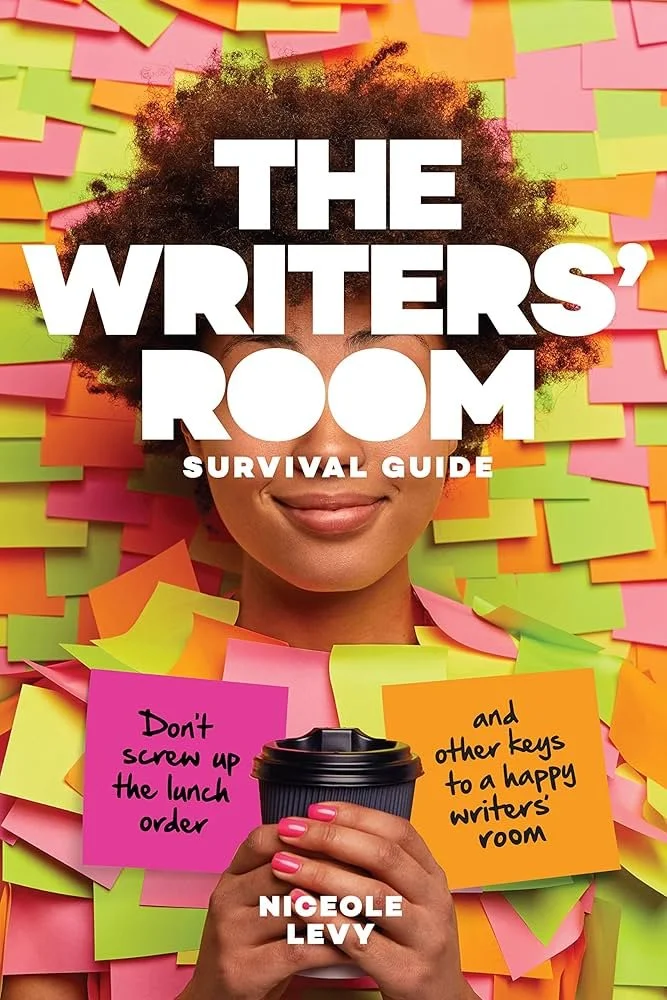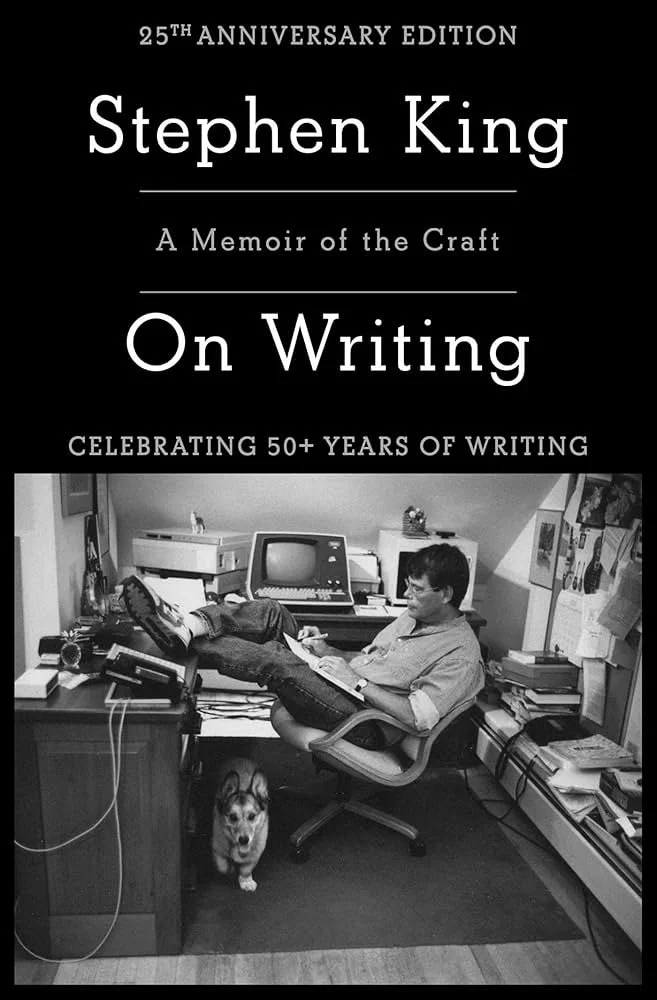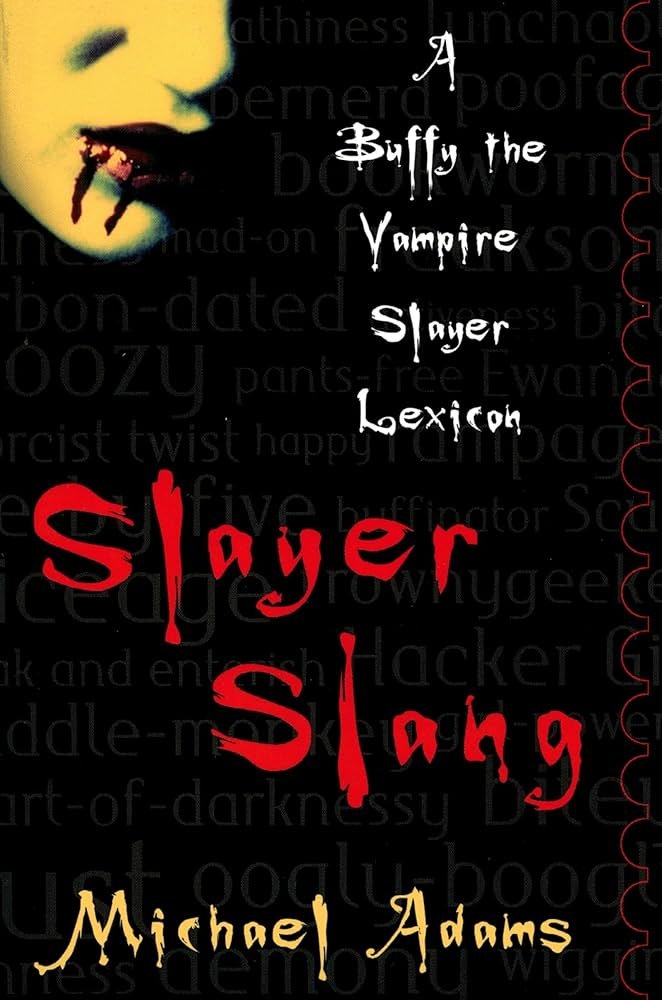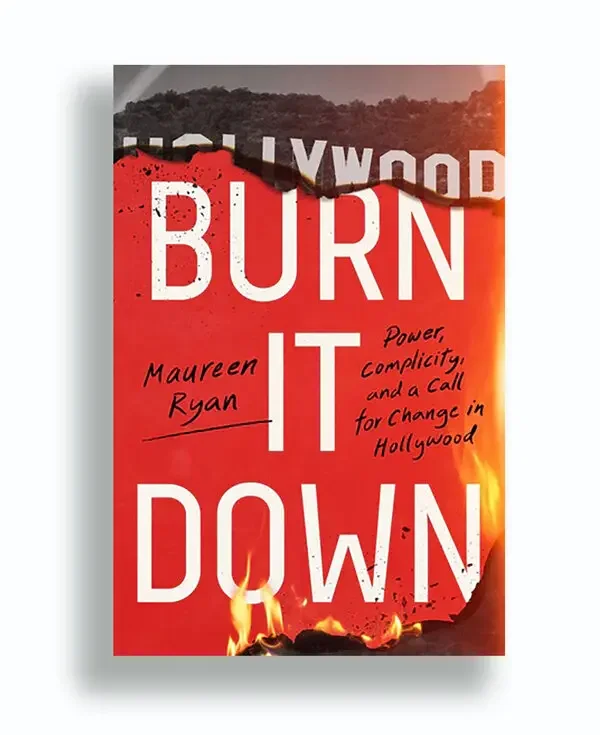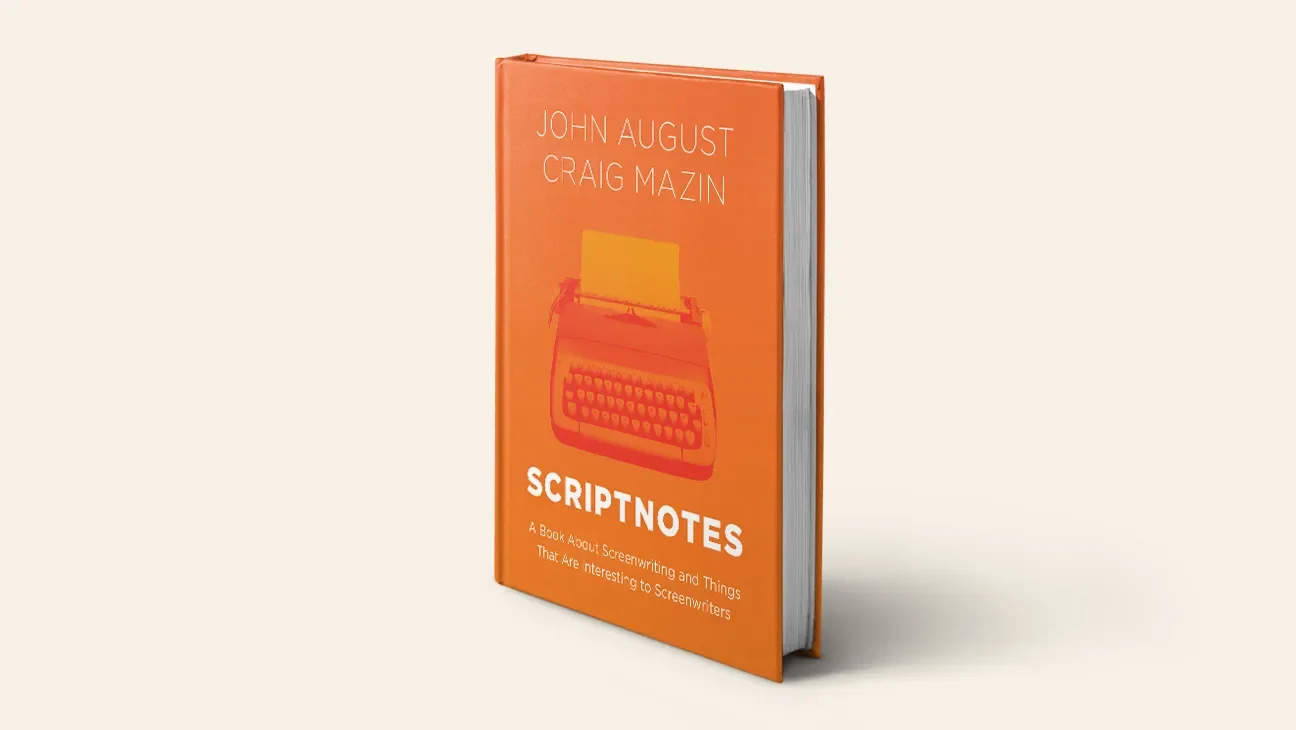Top 16 Screenwriting Books
You don’t need to have an MFA to become a screenwriter — but it isn’t enough to just have a good idea and start writing. There is a craft and industry standard to the art of screenwriting, not to mention a lot to know about the business of being a professional screenwriter. We’ve curated a list of books to help you learn how to write a screenplay, how to tell a compelling story, and what to expect from the industry (and what the industry expects of you). Enjoy!
1. Save the Cat! - Blake Snyder
Snyder’s book, subtitled The Last Book on Screenwriting You’ll Ever Need, is a great starting point for a wannabe screenwriter. It offers a clear introduction to the traditional formula of a screenplay, including story beats, popular genres, and tricks for creating compelling characters and troubleshooting your plot. Snyder also concludes with a soft-launch into the business of screenwriting. Not sure where to start? Start here.
2. The Hollywood Standard - Christopher Riley
The Hollywood Standard is a straightforward dive into the nitty gritty of screenplay formatting. The first thing someone should do if they want to write a screenplay is to write it using screenwriting software, but that can be cost-prohibitive and there are free templates out there for word processing programs like Google Docs. Even so, there are about a million tiny formatting details that the screenwriting community likes to debate online (to bold and/or underline sluglines?), that could make you look like an amateur to a reader (writing a multi-cam screenplay in single camera formatting), or that might just seem confusing (ie: can you add a parenthetical at the end of dialogue? In live action, you shouldn’t, but in animation, maybe!).
You’ve got to know the rules before you decide to break the rules, so it’s great to have this kind of book as a reference.
3. Screenplay: Writing the Picture - Rubin U. Russin and William Missouri Downs
This book starts diving deeper into story development, including themes, script plotting and structuring, character insights, dialogue, revisions, formatting, and writing with marketing in mind. It includes a variety of modern screenwriting mediums, including TV, webisodes, and video games. Being fluent in these concepts will help you innately take your story from a fine one to a competitive one in a very saturated market.
4. Your Screenplay Sucks! by William M. Akers
“All beginning writers make the same mistakes. And many ‘pros’ do, too!” The concept of this book is simple; Akers identifies the most fatal errors writers make and offers a checklist of “100 ways to make it great.” This book teaches the writer to comb over a script like a reader, to critique your writing and address problem areas before you give it to industry pros who might just...stop reading when they get to these glaring mistakes.
5. The Writers’ Room - Niceole Levy
This is the holy grail of what to expect when you become a professional television writer. Levy identifies what a writers’ room is, what the different jobs are within it from support staff to showrunners, how to prepare for a staff writing position and then how to be a great staff writer, and what it’s like to break a story, write a draft, and get a shooting script ready for production. With anecdotes from her own experiences, it’s a must-read for anyone who wants to write for television.
6. The Hero with a Thousand Faces - Joseph Campbell
Alright. This one comes with an asterisk. You don’t have to actually read this entire book (though it’s fascinating) but you must be familiar with Campbell’s structure of the monomyth — most often known as “The Hero’s Journey.” Originally published in 1949, Campbell codified the traditional adventure heroes take in epic storytelling, from Odysseus to Luke Skywalker to Frodo and Bilbo Baggins. Not only is the structure familiar, compelling, and reassuring to audiences, but the beats make for a strong guideline when writing your own outline. This is another example of something you have to know before you choose to depart from it.
7. The Heroine’s Journey - Gail Carriger
While The Hero’s Journey is a traditional and popular storytelling structure, it is not without its weaknesses. In The Heroine’s Journey, Carriger offers a different archetype for your protagonist, and possibly one that could help change the values we uphold in our society. This is a book that will open your eyes as a storyteller to what kinds of stories we have been telling in our culture, what kinds of character tropes have dominated our attention, and an offering of a different path.
8. On Writing - Stephen King
Writing seems like it would be easy — after all, ideas spark for anyone anytime — but when it comes down to it, the craft of writing and seeing a screenplay through revisions and beyond requires discipline, grit, and no small amount of delusion. King, one of the most prolific and successful writers of our time, shares his own experiences as a writer along with his advice for aspiring writers. His book serves the writer as a form of companionship and commiseration, along with inspiration to stay the course.
9. Bird By Bird - Anne Lamott
Bird By Bird is a treasure trove of profound and practical insights for the writer. Tethered always to what it means to be a creative person, Lamott writes about what it is like to be human, to live a full life, and to synthesize our experiences into the art and craft of writing. This book is about the alchemy of writing; it’s a gift for the writer and a truly delightful read.
10. Shoot This One - Javier Grillo-Marxuach
In his self-described “far-too-revealing essays,” Grillo-Marxuach writes about the inner works of the entertainment industry. From how shows actually get on the air to whether or not the writers of Lost actually had a plan, his anecdotes offer a look into how complex it actually is to be a writer and to get your projects made. Bonus — he has a second book of essays to follow-up this fun and informative read, Shoot That One.
11. Slayer Slang: A Buffy the Vampire Slayer Lexicon - Michael Adams
Chances are, if you read a screenplay written by Shonda Rhimes, Amy Sherman-Palladino, or Aaron Sorkin, you could possibly guess who wrote it even if it didn’t have a title page. These writers are masters at creating the stylistic tone and unique dialogue that launched their careers into the stratosphere. Joss Whedon may have allegations against his behavior and character, but his show Buffy The Vampire Slayer nonetheless remains strongly in the pop culture zeitgeist — and a major reason why can be attributed to the “slayer slang.” Adams’ book takes a deep dive into the playful dialogue of Buffy with anecdotes from screenwriters and episodes that defined the series. It’s a great eye opener on what happens when you find your true voice as a writer.
12. The War of Art - Steven Pressfield
Pressfield’s easy-to-read non-fiction book about the “resistance” faced by artists and others trying to break through creative barriers is both a diagnosis and a treatment plan for writers. Feeling writer’s block? Procrastinating? Terrified by the blank page? Stalling on tackling your second draft? These are all forms of what Adams calls “the resistance” — it’s natural, it’s common, and it’s conquerable. This is a great book to have at hand’s length anytime you’ve got a project you want to get out of your head and onto the page.
13. How Not to Make a Short Film - Roberta Marie Munroe
After screening short film submissions for the Sundance Film Festival for five years, Roberta Marie Munroe learned to identify pitfalls and mistakes common to filmmakers. As many of today’s writers are multi-hyphenates (whether by choice or necessity), this book is an excellent treatise on breaking into the business with a great short film. From the first draft of the script to production, post, and distribution, she offers a primer on the poems of the filmmaking industry: the short film.
14. Cassandra Speaks - Elizabeth Lesser
In this book, Lesser explores the myths and stories that are in the DNA of our culture before dismantling them and redefining what it means for a person or character to be powerful or strong. As writers, our screenplays become part of the conversation happening in the world around us, so we share a responsibility in understanding the impact our stories have on others. This is also a clarion call that can help you answer the common “why you why now” questions that employers, buyers, and submission packets often ask.
15. Burn It Down - Maureen Ryan
To know our industry means to know the good and the bad. In Burn It Down, Ryan brings to light the pervasive moral shortcomings of Hollywood. The book is unflinching and should be a mandatory read for anyone in the industry to understand the toxicity that has persisted in the entertainment industry so that we do not contribute to, fall victim to, or enable it further.
16. Scriptnotes - John August and Craig Mazin
Alright, though not actually released yet, I have had a chance to be a beta reader on some chapters as well as a long-time listener of the Scriptnotes podcast and I feel very confident in recommending this upcoming book from August and Mazin. This book “about screenwriting and things that are interesting to screenwriters” offers the ultimate guide to writing a great screenplay and building a screenwriting career from two successful writers who have adapted and evolved over their decades-long careers. They’re great at not only guiding emerging writers but also identifying the most relevant topics for screenwriters in palatable ways. It’s available for pre-order now and will debut just in time for the winter holidays.


